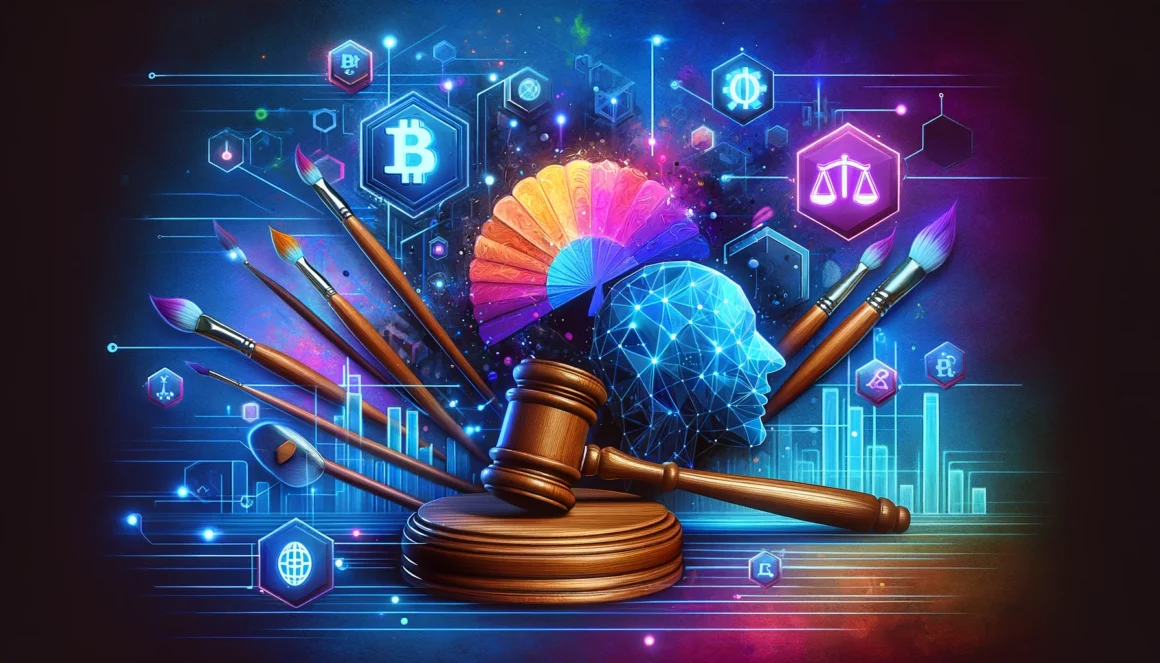In the rapidly evolving world of digital assets, non-fungible tokens (NFTs) have carved out a niche that marries art, technology, and ownership in unprecedented ways. As the NFT landscape continues to expand, questions surrounding the applicability of traditional intellectual property (IP) and copyright laws have become increasingly pertinent. A recent comprehensive study by the United States government sheds light on these questions, concluding that the existing legal framework is well-equipped to handle the nuances of NFTs.
The Verdict: Adequacy of Current Laws
Prompted by a query from two senators in mid-2022, the U.S. Copyright Office and the U.S. Patent and Trademark Office (USPTO) embarked on a detailed examination of NFTs’ interaction with current IP laws. Their findings, encapsulated in a 112-page report, affirm that the legal statutes in place are sufficient to cover the digital terrain NFTs occupy. This determination underscores a preference to nurture innovation within the NFT sphere, rather than constricting it with premature legislative actions.
Stakeholder Insights and Public Consultation
The government’s investigation was thorough, incorporating viewpoints from a diverse array of participants, including artists, brand owners, academics, and technologists. Through public notices and roundtable discussions, a consensus emerged against the formulation of NFT-specific legislation. Such a move, stakeholders argued, could potentially hamper the growth and innovation of this budding sector.
Intellectual Property and Infringement Concerns
Notwithstanding the report’s overarching conclusion, it acknowledges the prevalent issue of IP and trademark infringements within the NFT market. The decentralized nature of NFT platforms and the absence of uniform trading standards contribute to these challenges. However, the report notes ongoing efforts by some platforms to develop tools that empower trademark owners to protect their rights, reflecting a proactive approach to address these concerns without the need for new laws.
A Surge in NFT Trading Volumes
Despite skepticism and criticism in some quarters, the NFT market is witnessing a resurgence, with trading volumes experiencing a significant uptick. This resurgence is buoyed by innovations such as Bitcoin’s Ordinals and a rekindled interest in cryptocurrencies at large. The positive trajectory of NFT trading volumes suggests a robust and dynamic marketplace, keen on exploring real-world applications and utility beyond mere digital collectibles.
Conclusion: A Framework for the Future
The U.S. government’s study offers a reassuring perspective on the intersection of NFTs and intellectual property law. By affirming the adequacy of existing laws, it paves the way for continued innovation and growth within the NFT ecosystem. As technology evolves and new use cases emerge, the flexibility and adaptability of the current legal framework will be crucial in maintaining a balance between protecting creators’ rights and fostering an environment where digital art and ownership can flourish.
The Shadow of Enforcement and the Need for Evolution
The concern about “bad actors” exploiting the NFT space to misappropriate trademarks and compromise consumer data highlights the darker facets of digital asset markets. It underscores the urgency for regulatory bodies to remain vigilant and adaptive, even as they opt not to overhaul IP laws or registration practices at this juncture.
Regulatory Actions and the Spectrum of Ambiguity
The settlement between Impact Theory and the SEC in August 2023 marked a significant moment in the U.S. regulatory approach to NFTs. By categorizing Impact Theory’s NFT offerings as securities—due to the profit promise made to investors—the SEC set a precedent that not all NFTs are beyond the reach of securities regulation. This case, while not blanketly applying securities law to all NFTs, signals the nuanced stance regulators are taking towards different manifestations of NFTs.
Judicial Precedents and Digital Dilemmas
The absence of controlling judicial precedents regarding the enforcement of trademark registrations for physical goods against similar digital goods tied to NFTs adds another layer of complexity to IP enforcement in the digital realm. This ambiguity challenges stakeholders to navigate enforcement efforts cautiously while anticipating future legal clarifications.
High-Profile NFT Drops: A Testament to Market Vitality
Despite the regulatory challenges and legal ambiguities, the continued interest and participation in the NFT market by high-profile figures like Donald Trump underscore the vibrant and resilient nature of this space. Such activities not only captivate public attention but also fuel discussions around the legitimacy, value, and regulatory implications of NFTs.
The U.S. government’s study into NFTs and intellectual property laws concludes that existing copyright and IP laws are sufficient for the digital assets. This conclusion aims to encourage innovation while addressing concerns over IP infringements. With NFT trading volumes on the rise, the future of NFTs appears promising, pointing towards expanding utility and real-world applications.
The post Navigating the Regulatory Seas: U.S. Government Finds Existing Intellectual Property Laws Fit for NFTs appeared first on NFT CULTURE.
